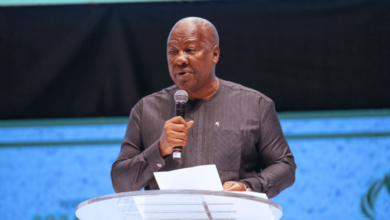The “1 Student, 1 Tablet” policy may suffer the same fate as the undelivered teachers’ laptops, warns Educationist
The government has made a significant announcement regarding its initiative to distribute free tablets to Senior High School (SHS) students, scheduled to commence on Monday, March 25, 2024. This decision comes as part of the Ghana Smart Schools Project, aimed at modernizing educational infrastructure across the nation.
Nana Gyamfi Adwabour, the Executive Director of the Centre for National Distance Learning and Open Schooling, highlighted the objectives of the project. He emphasized that it aims to enhance teaching and learning experiences by providing comprehensive teaching and learning management systems, digital educational content, and electronic devices to all senior high and Technical and Vocational Education and Training (TVET) schools nationwide.
However, Mr. David Akpaloo, Director of the Monarch Education Hub and Educationist, shared his perspective on this development during an interview on Ahotor 92.3 FM. He expressed concerns that the implementation of the “1 Student 1 Tablet” initiative might mirror past promises, such as providing laptops for teachers, which ultimately remained undelivered.
Mr. Akpaloo’s apprehension underscores the importance of ensuring effective execution and transparency in government-led educational initiatives. While the distribution of tablets holds the potential to revolutionize learning environments, it’s crucial to address any previous shortcomings and ensure accountability in the implementation process.
Efforts must be made to prioritize the needs of students and educators alike, guaranteeing equitable access to educational resources and technology. By fostering collaboration between government agencies, educational institutions, and stakeholders, Ghana can harness the transformative power of digital learning to nurture a more inclusive and innovative educational landscape.
The risk of history repeating itself emphasizes the urgency for meticulous implementation strategies. It is essential to address logistical challenges, ensure adequate funding, and establish clear accountability mechanisms to safeguard against potential setbacks.
The Educationist’s warning serves as a reminder that good intentions alone are insufficient; tangible action and follow-through are imperative for the success of educational policies. By learning from past mistakes and prioritizing accountability, policymakers can instill confidence in the public and ensure the equitable distribution of educational resources to students.
LISTEN TO DAVID AKPALOO IN THE AUDIO BELOW:
Story by: Emmanuel Romeo Tetteh(#RomeoWrites) / Ahotoronline.com




